第20章 LETTER 3(10)
It would be easy for me to descend into a greater detail,and to convince your lordship of what I have been saying in general by an induction of particulars,even without any other help than that of a few notes which I took when Iapplied myself to this examination,and which now lie before me.But such a digression would carry me too far:and I fear that you will think I have said already more than enough upon this part of my subject.I go on,therefore,to observe to your lordship,that if the history of the Old Testament was as exact and authentic,as the ignorance and impudence of some rabbies have made them assert that it is;if we could believe with them that Moses wrote every syllable in the Pentateuch as it now stands,or that all the Psalms were written by David:nay,if we could believe,with Philo and Josephus,that Moses wrote the account of his own death and sepulchre,and made a sort of funeral panegyric on himself,as we find them in the last chapter of Deuteronomy.
Yet still would I venture to assert,that he who expects to find a system of chronology,or a thread of history,or sufficient materials for either,in the books of the Old Testament,expects to find what the authors of these books,whoever they were,never intended.They are extracts of genealogies,not genealogies:extracts of histories,not histories.The Jews themselves allow their genealogies to be very imperfect,and produce examples of omissions and errors in them,which denote sufficiently that these genealogies are extracts,wherein every generation in the course of descent is not mentioned.
I have read somewhere,perhaps in the works of St.Jerome,that this father justifies the opinion of those who think it impossible to fix any certain chronology on that of the Bible:and this opinion will be justified still better,to the understanding of every man who considers how grossly the Jews blunder whenever they meddle with chronology.for this plain reason,because their Scriptures are imperfect in this respect,and because they rely on their oral,to rectify and supply their written,traditions:that is,they rely on traditions compiled long after the canon of their Scriptures,but deemed by them of equal antiquity and authority.Thus,for instance,Daniel and Simon the Just,according to them,were members at the same time of the great synagogue which began and finished the canon of the Old Testament,under the presidency of Esdras.This Esdras was the prophet Malachi.Darius the son of Hystaspes was Artaxerxes Longimanus;he was Ahasuerus,and he was the same Darius whom Alexander conquered.This may serve as a sample of Jewish chronology,formed on their Scriptures which afford insufficient lights,and on their traditions which afford false lights,We are indeed more correct,and come nearer to the truth in these instances,perhaps in some others,because we make use of profane chronology to help us.But profane chronology is itself so modern,so precarious,that this help does not reach to the greatest part of that time to which sacred chronology extends;that when it begins to help,it begins to perplex us too;and finally,that even with this help we should not have had so much as the appearance of a complete chronological system,and the same may be said of universal history,if learned men had not proceeded very wisely,on one uniform maxim,from the first ages of Christianity,when a custom of sanctifying profane learning,as well as profane rites,which the Jews had imprudently laid aside,was taken up by the Christians.The maxim I mean is this,that profane authority be admitted without scruple or doubt,whenever it says,or whenever it can be made to say,if not "totidem verbis,"yet "totidem syllabis,"or "totidem literis,"at least,or whenever it can be made by any interpretation to mean,what confirms,or supplies in a constant manner,the holy writ;and that the same authority be rejected,when nothing of this kind can be done,but the contradiction or inconsistency remains irreconcilable.
Such a liberty as this would not be allowed in any other case;because it supposes the very thing that is to be proved.But we see it taken,very properly to be sure,in favor of sacred and infallible writing,when they are compared with others.